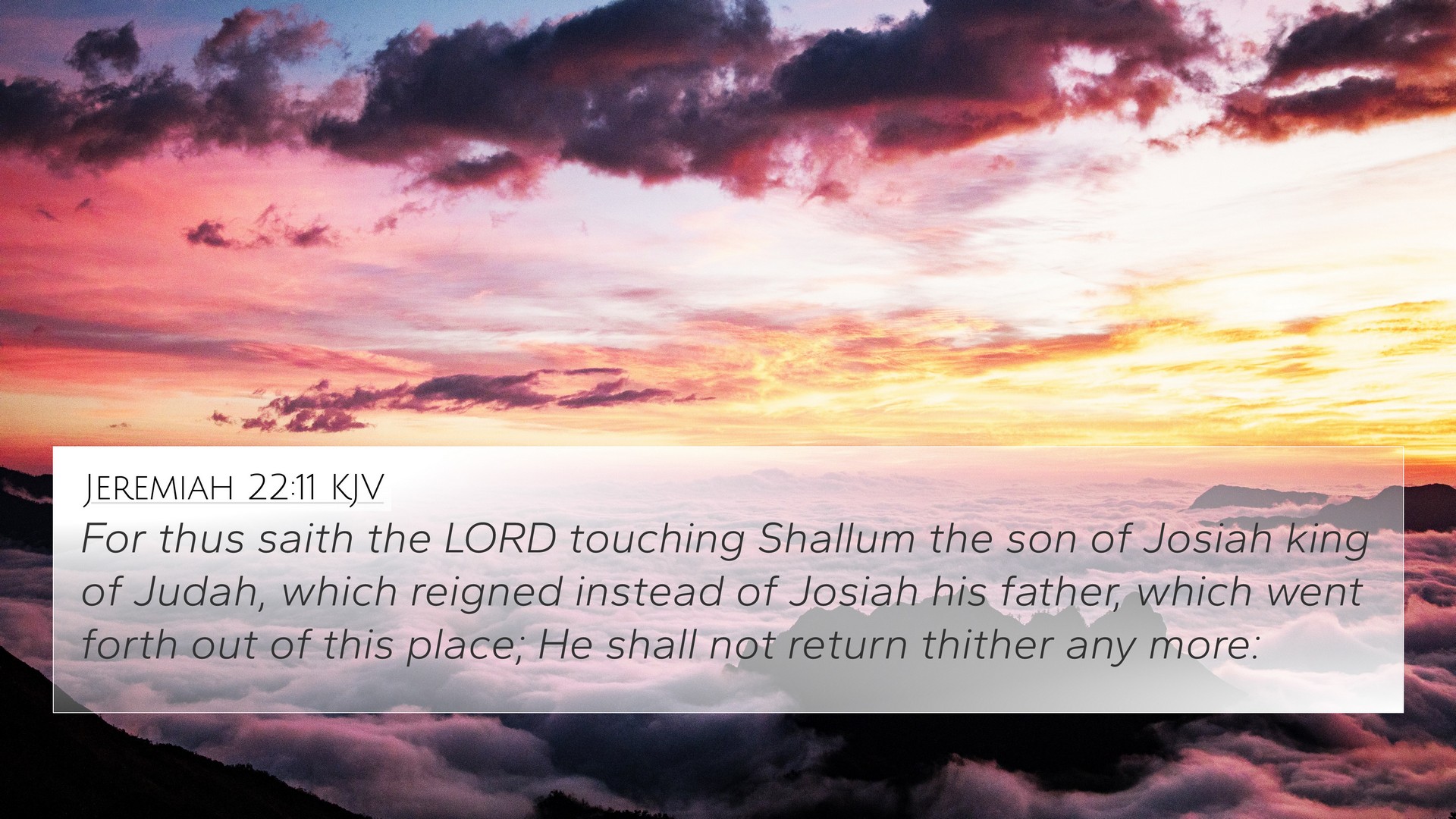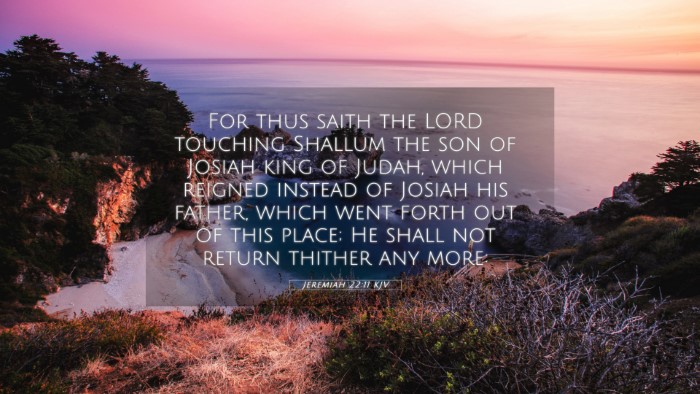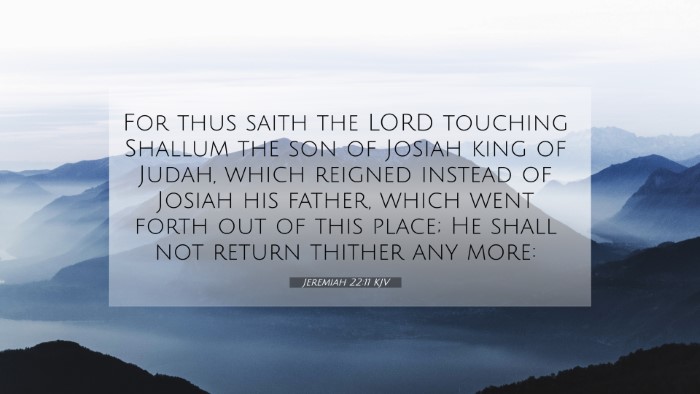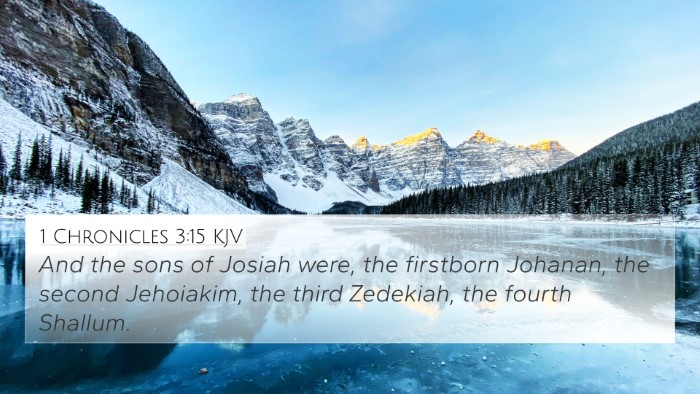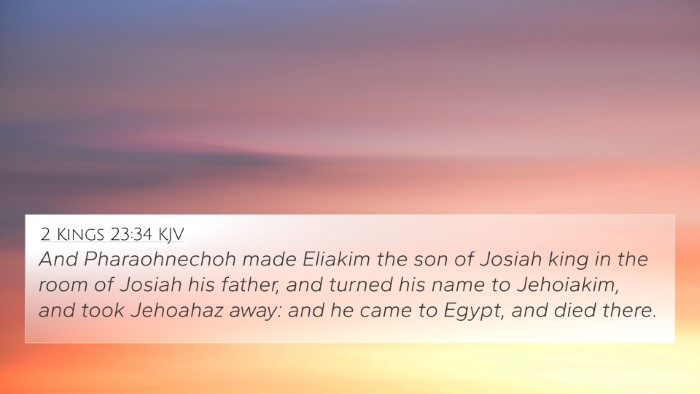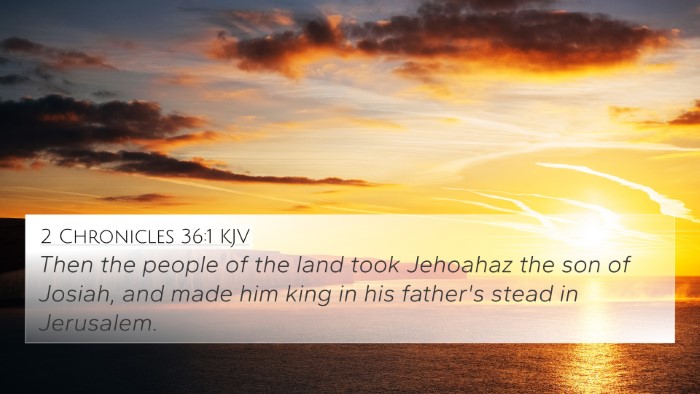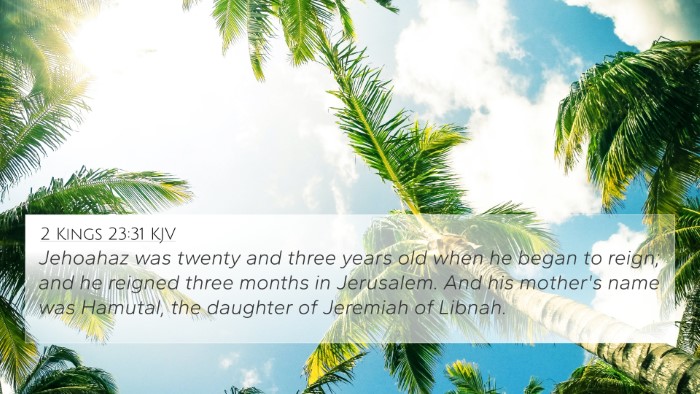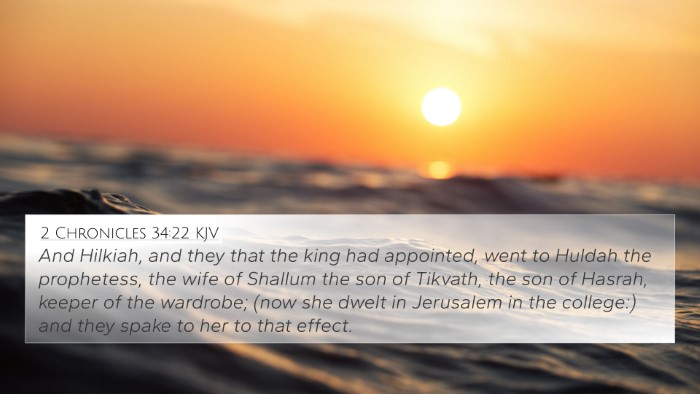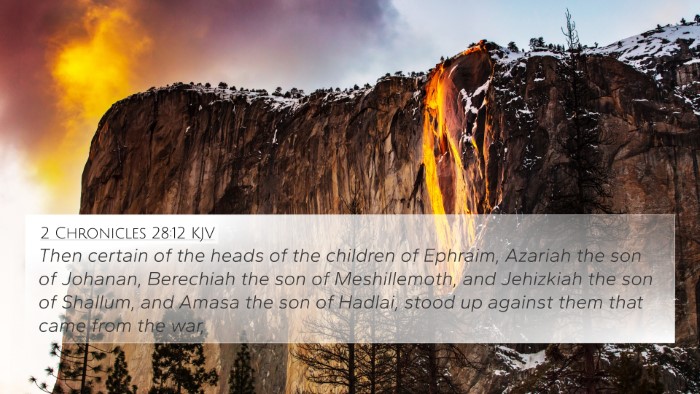Understanding Jeremiah 22:11
Verse: "For thus says the Lord concerning Shallum the son of Josiah, king of Judah, who reigned instead of Josiah his father, which went forth out of this place; He shall not return thither anymore."
Overview of Jeremiah 22:11
This verse is a prophetic pronouncement regarding Shallum, also known as Jehoahaz, the son of King Josiah of Judah. After Josiah's death, Shallum assumed the throne but was soon captured by Pharaoh Necho and taken to Egypt, never to return to his homeland. This pronouncement underscores the themes of judgment and exile found throughout the book of Jeremiah.
Commentary Insights
Insights from various public domain commentaries shed light on the significant meanings of this verse:
-
Matthew Henry's Commentary:
Henry emphasizes the idea of God's sovereign judgement. He highlights that Shallum's reign represents the instability of leadership when in rebellion against God. The verse illustrates the consequences of failing to uphold righteousness.
-
Albert Barnes' Notes:
Barnes contextualizes Shallum's captivity as a consequence of Judah's moral failures and divine rejection. He underscores that the message directly addresses the futility of thinking one can triumph against God’s decrees, pointing to the inevitability of divine judgment.
-
Adam Clarke's Commentary:
Clarke elaborates on the implications of the prophecy, considering the historical context of the era. He interprets the statement about Shallum’s absence from Jerusalem as a foreshadowing of the greater exiles faced by the nation, tying it into the continued downfall of Judah.
Thematic Connections
This verse presents rich thematic connections within scripture, integrating historical context with prophetic significance:
To further understand the implications of Jeremiah 22:11, consider these Bible cross-references:
- 2 Kings 23:30-34 - The account of Shallum's ascension to the throne and the prophetic backdrop leading to his downfall.
- Jeremiah 25:8-11 - God’s warning of judgment upon Judah and the prophecy of exile for the entire nation.
- Jeremiah 34:3 - A further prophetic statement regarding the fate of those kings who do not follow God's ways.
- Isaiah 39:5-7 - A prophetic warning about Israel's eventual exile and the consequences of disobedience.
- Lamentations 1:1-3 - The mourning over the consequences of sin, directly connected to the fall of Jerusalem.
- 2 Chronicles 36:1-4 - The summary of Shallum’s reign and the overarching narrative of Judah's leadership failures.
- Ezekiel 17:12-21 - A parable that illustrates the fate of the king and how divine plans cannot be thwarted.
Engaging with Cross-References
The examination of Jeremiah 22:11 reveals interconnected themes of judgment, exile, and divine sovereignty prominently displayed in the narrative of Judah's kings.
Utilizing tools for Bible cross-referencing, such as a Bible concordance or a Bible cross-reference guide, one can explore these connections further:
Tools for Bible Cross-Referencing:
- Bible Concordance: An invaluable resource for identifying key themes and terms across various verses.
- Cross-Reference Bible Study: Methods that engage readers in theme-based explorations of scripture, allowing for deeper understanding.
- Bible Reference Resources: Materials that compile interconnected scripture passages and their implications.
- Bible Chain References: A study method linking multiple verses based on themes or keywords, enriching one's study of biblical texts.
Conclusion
In conclusion, Jeremiah 22:11 serves as a sobering reminder of God's justice and the futility of rebellion against His will. The insights from Matthew Henry, Albert Barnes, and Adam Clarke, alongside biblical cross-references, create a comprehensive understanding of the themes present in this verse. Through comparative Bible verse analysis and inter-Biblical dialogue, readers are encouraged to explore these connections further, enhancing their study and understanding of the scriptures.
